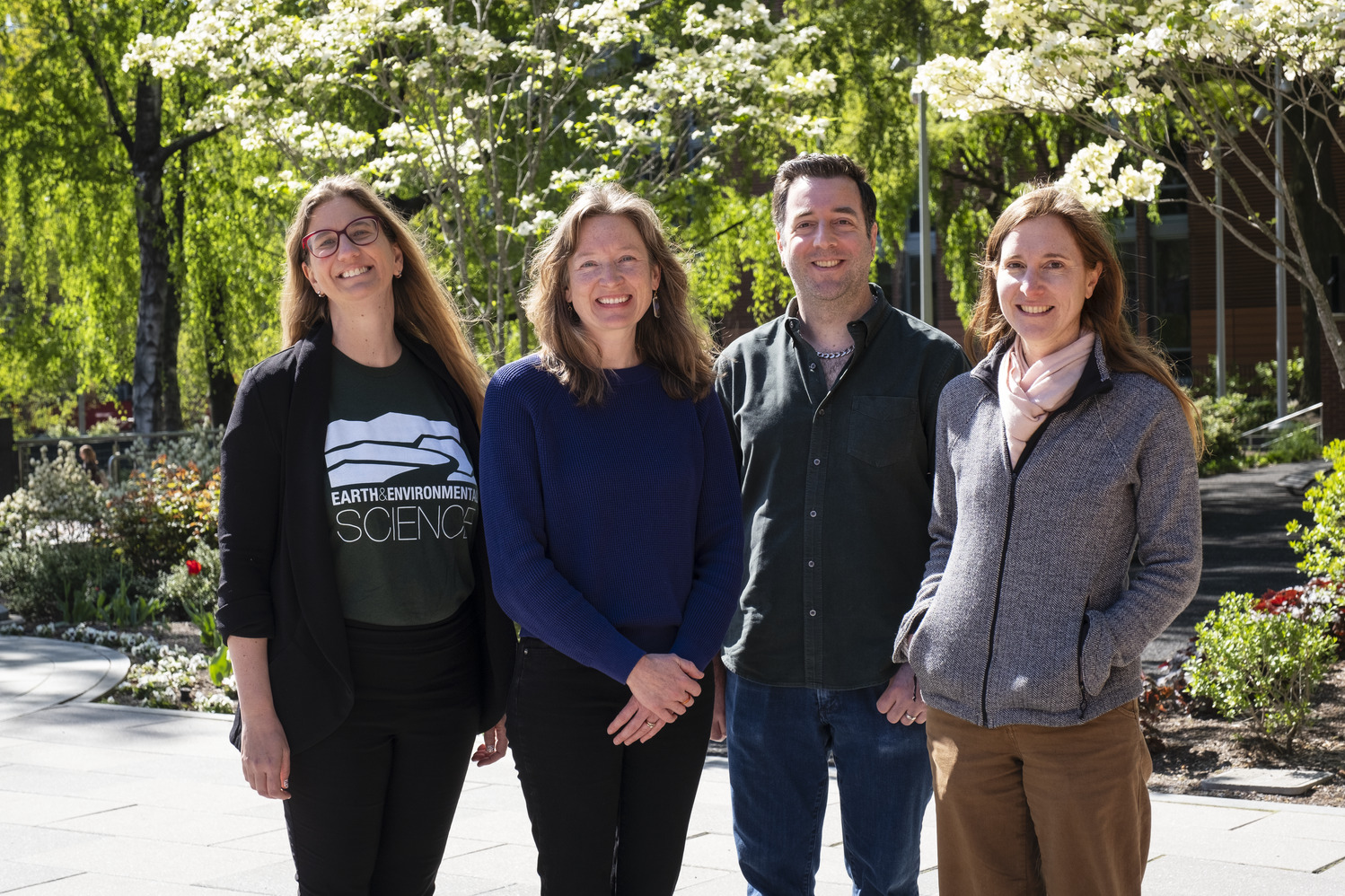Through a transdisciplinary effort launched by faculty, Temple University is introducing a master’s degree and a certificate in sustainability both focused on practical skills and broad perspectives. The programs aim to empower graduates to become catalysts of positive change in a rapidly evolving world.
This fall, Temple will welcome its first-ever cohort of students, beginning a transformative journey for those pursuing a professional science master’s (PSM) or a graduate certificate (GC) in sustainability. These pioneering curriculums, offered through the Colleges of Liberal Arts and Science and Technology, are part of a broader effort to establish a Sustainability and Environmental Justice Collaborative between the two colleges. Environmental justice refers to the fair treatment of everyone in environmental decision-making and activities.
“Interdisciplinary endeavors are a major priority for Temple, especially thinking about programs that address urgent and significant challenges of our time,” Provost Gregory N. Mandel said. “This terrific new program that sits on the foundation of sustainability science and environmental justice, advanced by the College of Liberal Arts and the College of Science and Technology, will offer students and faculty the direct opportunity to move our nation and world toward a more sustainable future.”
Melissa R. Gilbert, director of the Center for Sustainable Communities in the College of Liberal Arts, said that researchers, including Temple faculty members, have known for decades that humans have created a climate crisis and that understanding and solving contemporary problems require a new solution. She said the faculty group understands that “there is a new paradigm in the field of sustainability science.”
“Climate change is not an isolated issue, and it won’t be addressed fully by a siloed approach, which is why Temple is committing its expertise and resources toward this impactful interdisciplinary program,” Mandel said.
Temple University's new programs stand out in the emerging field of sustainable science, which deals with the interactions between natural and social sciences. These new degree and certificate programs are designed to meet the needs of employers seeking highly trained leaders. The field is rapidly growing, with increasing demand for professionals who can integrate sustainability principles into various sectors such as business, government, non-profits and academia. In recent years, other universities have launched similar programs, but none offer the same comprehensive approach as Temple University.
According to Gilbert, a geography and urban studies professor, the new programs at Temple University are not just about learning but about making a real difference. The program aims to allow students to do impactful work and attract employers in the Northeast Corridor from New York to Washington, D.C. The studies are expected to attract people drawn to sustainability who want to make a positive difference. With this master’s degree, students can engage in meaningful work that contributes to building a more sustainable and equitable future for generations to come.
Students can take courses in one of five concentrations, including biodiversity and conservation, urban sustainability, energy systems and natural resources, climate justice, and geospatial technologies. The program also emphasizes professional development and communication skills as well as policy and ethics. Sustainability is inherently interdisciplinary, and Temple's program reflects this. It requires an understanding of complex systems and the ability to collaborate across different fields and stakeholders. According to the PSM Steering Committee, this comprehensive approach ensures that graduates are well-rounded professionals ready to tackle the complex challenges of sustainability.
The launch of the new sustainability program as a collaborative effort between the Colleges of Liberal Arts and Science and Technology exemplifies Temple's commitment to the strategic plan, explained Richard Souvenir, vice provost for strategic initiatives. “By streamlining administrative processes, we've enhanced our support for faculty-led projects, paving the way for this innovative degree program,” he said. “Students will benefit from a curriculum integrating the diverse expertise of faculty in the Departments of Geography and Urban Studies, Biology, and Earth and Environmental Science. This effort not only reflects our dedication to educational excellence but also our commitment to addressing critical environmental challenges,” he said.
The one-year course of study is designed to challenge participants to critically reflect on their values, beliefs and assumptions about the world, ultimately fostering a more profound sense of purpose and connection to the planet and its inhabitants.
“The student who might want to take this program is interested in working with communities, with cities. governments or companies who also have a passionate interest in the science,” said Alexandra Davatzes, a geologist and the College of Science and Technology’s director of Diversity, Equity, Inclusion and Belonging. “It’s for someone who wants to make a difference in a variety of different potential sectors. That is why we put in the core classes in ethics and communication as well as policy and scientific methodology.”
With Davatzes and Gilbert, the PSM Steering Committee includes Professors Hamil Pearsall and Amelia Duffy-Tumasz of the College of Liberal Arts and Professors Erik Cordes and Rob Jennings of the College of Science and Technology. Duffy-Tumasz and Jennings will be co-directors of the program, working with an external advisory board of representatives from agencies such as the Pennsylvania Department of Environmental Protection, the Philadelphia Water Department, and the National Oceanic and Atmospheric Administration. Gilbert said the professional connections will assist students in securing internships and ensure that the curriculum is relevant to employers.
Davatzes said Temple plans to offer scholarships to students from communities disproportionately impacted by climate change, pollution and other challenges. “We want a diverse community of scholars,” Davatzes said. “We need a workforce that can communicate across the natural sciences and the social sciences.”
Learn more about the professional sustainability master’s and certificate programs.

